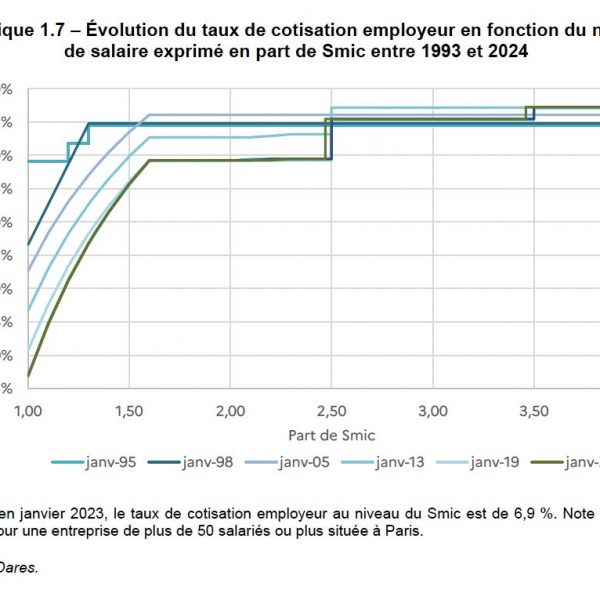
By Laurent HERBLAY
Supply-side policy is one of the main reasons for our country's economic decline (along with the euro and totally unreasonable free trade).
The political crisis our country is going through is largely due to the supply-side policy pursued since the Attali Commission launched by Nicolas Sarkozy, accelerated by François Hollande with the Gallois Report, and amplified by Emmanuel Macron in 2017. It is this policy that has created this economic dead end, costing us over 100 billion euros per year, with nothing in return. But why doesn't it work?
As derisory as it is doubly harmful
In this borderless European Union, and particularly in our country, which is even more open than its neighbors, our leaders have striven for nearly 20 years to reduce social rights, the cost of labor, and the taxation of multinationals and the wealthiest in order to be competitive. Because factories can leave overnight, workers' rights have been severely restricted, the cost of labor near the minimum wage has been significantly reduced, as has corporate tax. And because the wealthiest can leave for elsewhere, their taxation has been reduced, with the abolition of the ISF wealth tax and the PFU flat tax, which halves the levies on dividends received by billionaires. The goal: to keep the wealthiest and businesses in France, which was supposed to "trickle down" to the French people later...
But more than 15 years after this Attali Commission, the results are disastrous: far from attracting activity to our country, our trade deficit has continued to grow. Unemployment remains at a considerable level, despite the government's statistical manipulations. The 100 billion euros per year put on the table by Macron, including Hollande's term, have been written off as losses. They did not create any additional economic activity. In doing so, we find ourselves with one of the worst budgetary situations in the EU, with the 4th downgrade of our country's credit rating by Fitch since 2012 and rising interest rates. Yet, our public services are sorely lacking resources, with hospitals short of beds, doctors, and caregivers, and a civil service financially mistreated in many areas.
The first flaw of this policy is that it is negligible. Even if 60 billion were invested under Hollande and Macron to lower the cost of labor around the minimum wage (through exemptions from employer social security contributions), this is derisory because even a 10% reduction has little effect when costs are 40% lower in Spain and 70% lower in Romania. We cannot win a single factory despite the sums on the table because we start from too high a level compared to countries that are part of the same space as us, and all of whose products can come to us without any barrier or tax. Worse, contradicting the quest for competitiveness, our standards are sometimes stricter than in the rest of the EU: we are the only ones wanting to ban acetamiprid, for example...
The second flaw is the depressive effect of this policy. It is precisely because Hollande and Macron invested a total of 100 billion per year to be more competitive that there is austerity for everyone else: the unemployed receive fewer benefits, civil servants see their pay scale point frozen, retirees have suffered a 10% real-term cut in their pensions. We are replacing better-paid civil service positions with temporary workers with lower status and pay. But all this weighs on consumption, doubly so: not only do many French people consume less, but because they have lost purchasing power (the median wage has fallen by 21% since 2000), they turn more to low-cost products, often imported, widening our deficit and impoverishing us collectively.
The third flaw is the effect of this policy on the labor market, with mass unemployment. The near-exemption from social security contributions on minimum wage jobs (6.9% vs. over 45% beyond 2.5 times the minimum wage), coupled with a demand for jobs far exceeding supply, pushes the supply downward. This allows the state to recruit teachers at miserable salaries, or companies to pay some graduates the minimum wage. This is the "smicardisation" of the labor market, hence the 21% drop in the median wage since 2000. To top it all off, this multiplies the cost of raising wages above the minimum wage: an employee paid 1.5 times the minimum wage costs nearly twice as much as one paid the minimum wage due to the exemption system. Employers are incentivized to keep employees at the minimum wage and not to help them progress.
Supply-side policy is one of the main reasons for our country's economic decline (along with the euro and totally unreasonable free trade). Despite an exorbitant cost, it has had almost no effect on job creation, has impoverished our public services and our labor market, directly weighing on our growth. It is one of the major mistakes of the UMPS to have adopted it and to cling to it.
Original article: agoravox.fr